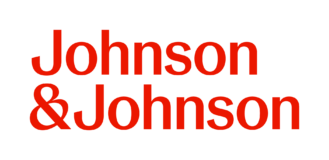
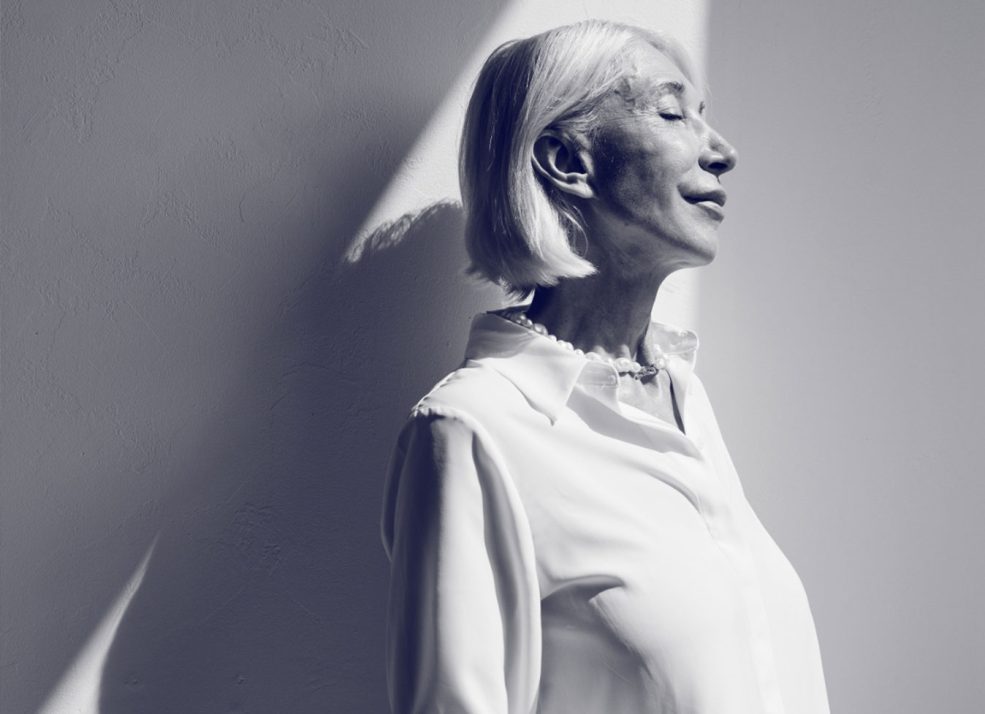
Redirecting the fibroblast-immune conversation to develop impactful therapies for patients
Mestag is an immunology company driving first-in-class treatments for cancer and inflammatory diseases. Through our unique understanding of fibroblast biology, we are rapidly advancing a pipeline of sophisticated agonist antibody programs and exploring our RAFT target discovery platform to identify new targets for the development of new treatments.
New approaches are urgently needed
We are working towards a future in which the 50-70 percent of cancer patients who fail to respond to current therapies, and the 60 percent of patients with inflammatory disease who fail to achieve durable clinical remission, can benefit from better treatments 1.
Impactful therapies for patients by redirecting fibroblast immunology
Mestag’s pipeline leverages powerful newly emerging fibroblast immunology, including the recently recognized importance of tertiary lymphoid structures (TLSs) in driving improved patient outcomes in solid tumors; and the role of stromally-driven inhibitor receptors in shutting down the pathogenic activity of selected immune cell populations in inflammatory disease.
The Mestag Team
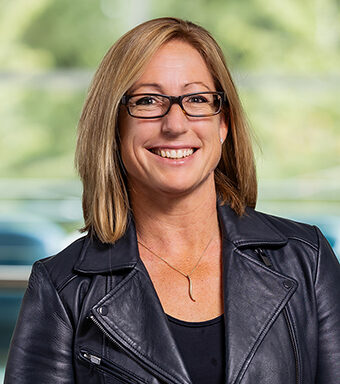

Susan brings more than 25 years of experience as a strategic and operational leader in the international biotech, investor and pharmaceutical industries. She co-founded Mestag Therapeutics in 2020, building a strong organization around ground-breaking science and leading the company through a $45m financing and strategic pharma and academic partnerships. In addition to serving as Chief Executive Officer of Mestag, Susan is a Venture Partner at SV Health Investors, an advisor to AdBio (Paris) and a member of the Development Board of Christ’s College, Cambridge.
Susan joined Mestag from retinal therapy company Gyroscope Therapeutics (acquired by Novartis), where she served as Chief Business Officer, driving the company’s $62m Series B and adding critical delivery technology via the acquisition of Orbit Biomedical ($12m Series A), where she was founding Chief Executive Officer. Prior to Orbit (Philadelphia), Susan led strategy and operations as Chief Business Officer of Freeline Therapeutics (London). Susan completed multiple transactions during her tenures in Global Business & Corporate Development at Alexion (Switzerland/US) and Merck KGaA (Geneva). Susan began her career in strategy consulting/M&A and led biotech seed investments managed by AMJ, part of global investment company ABRDN.
Susan has an MA and PhD from the University of Cambridge and is a previous Fellow of the Securities Institute.
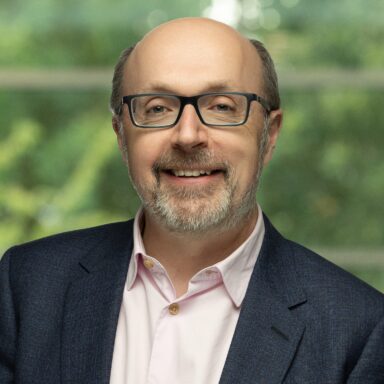

Matthew has more than two decades of experience as an R&D leader and scientist in inflammatory disease and cancer. His career has encompassed the research and development of six FDA-approved monoclonal antibodies, in addition to over twenty monoclonal and bispecific antibodies that have entered clinical development.
Matthew joins Mestag from Regeneron, where he served as Vice President of Research, Head of Therapeutic Focus Area Immunology & Inflammation, leading a team of over one hundred scientists spearheading new research, as well as supporting the ongoing development and approvals of Dupixent®, Kevzara® and Libtayo®. During his tenure at Regeneron, Matthew’s team delivered a new platform of costimulatory bispecific antibodies to enhance the activity of checkpoint inhibitors and CD3 bispecifics in cancer, and the combination strategy of the anti-allergy franchise. Earlier in his career, whilst he was the Cambridge site lead for the Respiratory, Inflammation and Autoimmunity Group at MedImmune, the department advanced six programs into the clinic, including mavrilimumab, Adbry® and Faserna®. At Cambridge Antibody Technology (CAT), Matthew led a team of biologists supporting the AstraZeneca alliance inflammation portfolio in rheumatoid arthritis, asthma and osteoarthritis, culminating in the acquisition of CAT by AstraZeneca in 2006 for $1.3 billion.
Matthew has a PhD from the University of Durham and a BSc (Hons) from the University of Dundee.
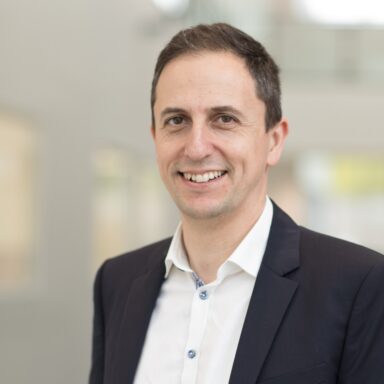

Pascal has over 25 years of experience leading drug discovery and preclinical development programs at various biotech companies. Early in his career, he worked with technology platforms focused on target discovery at Galapagos and gene therapy at Introgene. During his tenure at Ablynx, Thombogenics, Tusk Therapeutics, Oncurious, and Aboleris, Pascal gained extensive experience in developing biologicals, accelerating programs towards clinical trials across different therapeutic areas. Most recently, he contributed to the development of the IgG BiCE technology at Commit Biologics. Pascal holds a PhD in Biomedical Sciences from KU Leuven.
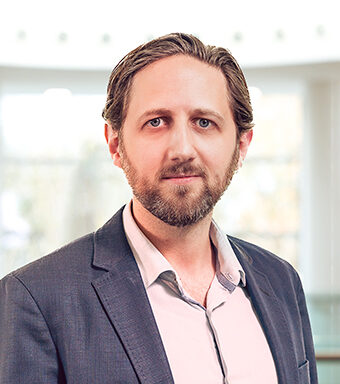

Robert has over a decade of experience in business development and corporate strategy, which includes setting up strategic partnerships, in and out licensing of assets, M&A, venture financing and company building. He has worked across oncology, neurodegenerative disease and immunology and has a broad network in biotech, pharma and venture capital. Robert was previously the Head of Business Development at Tusk Therapeutics, a preclinical stage immuno-oncology company, where he was closely involved in the sale of Tusk to Roche (€655 million acquisition in 2018). After the acquisition, he served as the CEO of Black Belt Tx (now Alesta Therapeutics), an oncology company focused on targeting the stress response pathway. He was Head of Contract Research for reMYND, a biotech focused on Alzheimer’s, Parkinson’s and diabetes, and worked as an investment analyst at M Ventures, Merck KGaA’s corporate venture capital arm. Robert holds an MSc in molecular biology and business economics from Leiden University and Delft University of Technology.
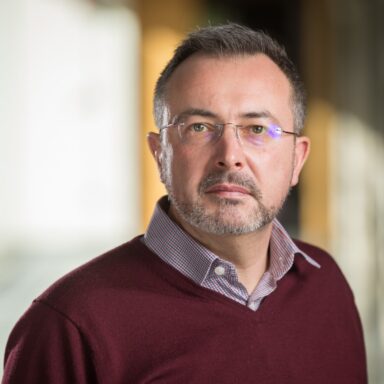

Glen Clack, MB, BS, MD, FFPM, is a highly experienced oncology clinical specialist, with more than 30 years of experience in the field. His early career was spent in clinical practise, followed by late-stage clinical development at AstraZeneca, focused on the endocrine portfolio where he delivered multiple NDAs/sNDAs, and during which time he represented AstraZeneca on the Cancer Research UK Radiation Combinations Alliance. Subsequently, Glen’s career has focused on translational medicine, and he has been accountable for the early development of multiple anti-cancer compounds, from lead optimisation to clinical proof of concept in both solid and haematological malignancies. His experience spans translational clinical trials of small and large molecules, vaccines, cell-based therapies and nanoparticle formulated treatments.
Glen is Honorary Professor of Translational Medicine in the Department of Oncology and Metabolism at the University of Sheffield, a Fellow of the Faculty of Pharmaceutical Medicine and tutor and lecturer in the School of Pharmacy at Manchester University. He graduated from the Royal Free Hospital School of Medicine, London.
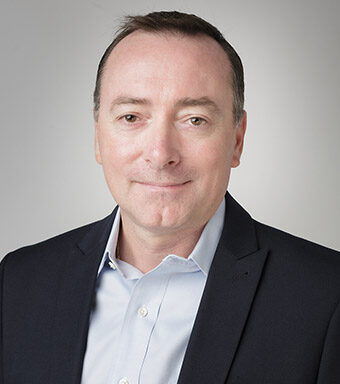

Greg Elson has over 30 years of experience in the Biopharma industry across multiple disciplines:
Prevail Biopharma Solutions (current): Co-founder and managing partner providing Expert CMC strategic advice in the field of Biotherapeutic product development
Alentis Therapeutics (current): Chief Technology Officer
AMAL Therapeutics / Boehringer Ingelheim: VP Manufacturing
Glenmark Pharmaceuticals: VP Biologics CMC
NovImmune: Section Head (Discovery Platforms), Department Head (CMC)
Pierre Fabre: Biotech Discovery
Glaxo Biomedical Research Institute: Biotech Discovery
End-to-end development of novel monoclonal, bispecific, multi-specific and biosimilar antibody-based products, and extensive experience implementing teams/support networks and working with CROs and CDMOs for all aspects of Cell Line Development, Drug Substance, Drug Product manufacture at different stages of development. Dr Elson also has a proven track record with regulatory agencies (Europe, US, Asia) and successful regulatory submissions for multiple products (monoclonal, bispecific and biosimilar antibodies) at various stages of development.
Creation of Multi-Disciplinary CMC structures within SMEs with integrated program management, Cell Line Development, DS+DP process/analytical/formulation development, GMP manufacturing and quality, and development of product discovery and mammalian cell line expression platforms. Greg is trained as a discovery scientist with PhD in Molecular Immunology, specialization in cytokine-cytokine receptor interactions (IL-6 family) and Immunoglobulin (Ig) regulation. Extensive publication record (50+) in peer-reviewed journals: bioprocessing sciences, immunological research (toll-like receptors, cytokine-cytokine receptors, Ig regulation)
Dr Greg Elson also has numerous patents filed in the fields of bioprocessing sciences and immunological research.
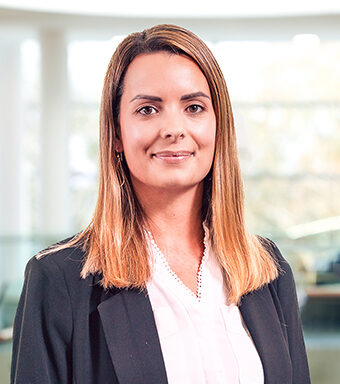

Eilidh Goodwin, a chartered accountant, joined Mestag after working in several key positions at Horizon Discovery Group (now Revvity). As Global Senior Finance Business Partner and Group Financial Reporting Manager, Eilidh was responsible for challenging the way the group operated to drive its financial effectiveness, as well as overseeing the financial reporting and controls environment of the group. She also played a pivotal role in supporting strategic initiatives as a member of the finance leadership team, including preparing for a NASDAQ listing and facilitating pre and post M&A activity. Prior to her transition into the life sciences industry, Eilidh served as an audit manager at Deloitte.
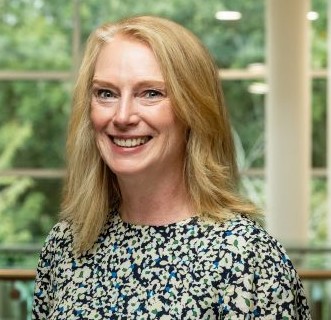

Alison is an experienced general counsel in the biotech and pharma sector. She was previously VP & Head of Legal, International at Aimmune Therapeutics, a position she retained following the acquisition of Aimmune by Nestlé Health Science in 2020. With responsibility for all legal activities outside the U.S. and a member of the executive team, Alison led the legal function supporting the clinical, regulatory and commercial teams through approval and launch of Palforzia® across Europe, and the expansion of the business from its original UK base to include offices in Ireland, Germany, France and Switzerland. After Aimmune became a Nestlé Health Science company, Alison led legal operations in Europe and was closely involved in the integration of Aimmune into Nestle.
Prior to this, Alison was General Counsel at Vernalis plc, and Associate General Counsel at Celltech plc where she was primary counsel for the R&D team. She also worked in private practice at Theodore Goddard and Freshfields as a solicitor specializing in IP and technology. She began her career as the Research Assistant to the Dean of Dentistry at Sydney University.
Alison holds a BSC Hons in Biochemistry from the University of London and an MSc in Intellectual Property from Queen Mary, University of London.
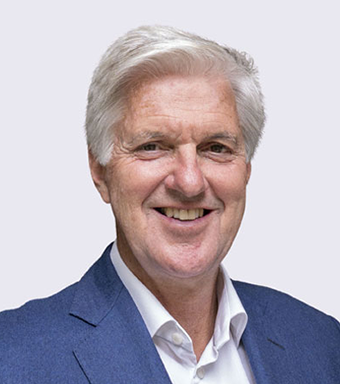

Ton Logtenberg is the founder and former President and CEO of Merus N.V., a Nasdaq-listed clinical-stage biotechnology company advancing leading-edge, targeted treatments based on multi-specific antibodies to address the unmet needs of cancer patients. Ton was founder and CEO of U-BiSys, which merged with Introgene to become Crucell, where he served as Chief Scientific Officer responsible for the discovery and development of vaccines and antibodies. Ton co-founded the HUB foundation for organoid technology and served on the board of directors and supervisory board. Recently, Ton co-founded and was appointed CEO of Gyes B.V., a biotech company exploring a next generation platform for therapeutic multispecific antibodies. He is currently Chairman of the Board of Synox Therapeutics, Board member of the Forbion European Acquisition Corporation, and Venture Partner at Forbion. Ton has a PhD in immunology from Utrecht University and did post-doctoral work at Columbia University with Dr. Frederique Alt. Ton was a professor of Immuno-Biotechnology at Utrecht University, where he is currently professor in Entrepreneurship in the Life Sciences.


Susan Hill PhD brings more than 25 years of experience as a strategic and operational leader in the international biotech, investor and pharmaceutical industries. She co-founded Mestag Therapeutics in 2020, building a strong organization around ground-breaking science and leading the company through a $45m financing and strategic pharma and academic partnerships. In addition to serving as Chief Executive Officer of Mestag, Susan is a Venture Partner at SV Health Investors, an advisor to AdBio (Paris) and a member of the Development Board of Christ’s College, Cambridge. Susan joined Mestag from retinal therapy company Gyroscope Therapeutics (acquired by Novartis), where she served as Chief Business Officer, driving the company’s $62m Series B and adding critical delivery technology via the acquisition of Orbit Biomedical ($12m Series A), where she was founding Chief Executive Officer. Prior to Orbit (Philadelphia), Susan led strategy and operations as Chief Business Officer of Freeline Therapeutics (London). Susan completed multiple transactions during her tenures in Global Business & Corporate Development at Alexion (Switzerland/US) and Merck KGaA (Geneva). Susan began her career in strategy consulting/M&A and led biotech seed investments managed by AMJ, part of global investment company ABRDN. She has an MA and PhD from the University of Cambridge and is a previous Fellow of the Securities Institute.
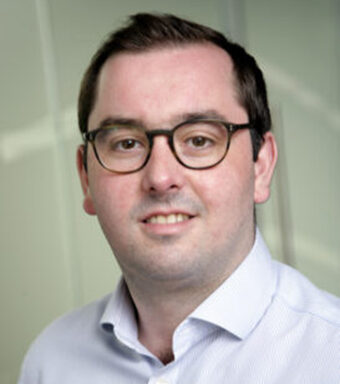

Charles joined SV in 2018 and is a Vice President the biotech team. He helps form and fund companies developing transformational new medicines, with a broad focus from new company creation to later stage public and private opportunities. Charles serves as a board director at Imbria Pharmaceuticals and Mestag Therapeutics, which he also helped incubate and launch. He is also Board observer at Autifony Therapeutics, EnaraBio, and Pulmocide. Prior to joining SV, Charles qualified as an ACA after three years at Deloitte, with a focus on Life Sciences clients including SV portfolio companies and has an academic background in human genetics & molecular biology (UCL). Outside of SV, Charles is a keen chef, swimmer, and traveller.
Academic Credentials:
MSci Human Genetics, University College London (UCL). Chartered accountant (ACA).
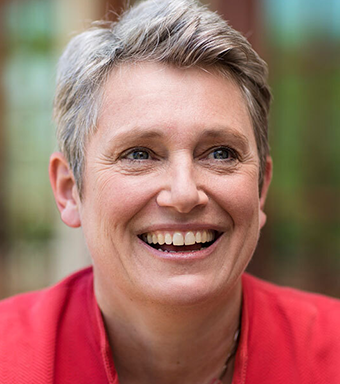

Kate Bingham, Managing Partner at life sciences venture capital firm SV Health Investors, co-leads SV’s biotech franchise, which has a long history of building companies developing transformational new medicines. SV’s investments have resulted in the launch of twenty drugs for inflammatory and autoimmune disease, blindness and cancer. In 2021 Kate was awarded a DBE in the Queen’s Birthday Honours for her services as Chair of the UK Vaccine Taskforce, where she led a team of world-class experts with the shared purpose of finding and manufacturing COVID-19 vaccines. Kate is a board member of the Francis Crick Institute and helped launch the Dementia Discovery Fund. She has a first class degree in biochemistry from the University of Oxford and an MBA from Harvard Business School (Baker Scholar).
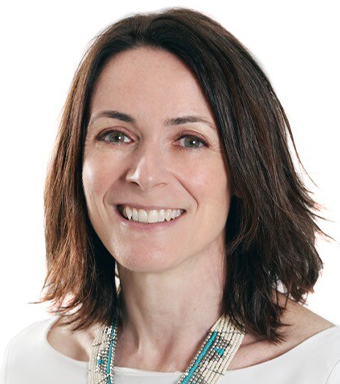

Fiona MacLaughlin is a Senior Director, Venture Investments, at Johnson & Johnson Development Corporation (Johnson & Johnson Innovation – JJDC, inc., the strategic venture arm of Johnson & Johnson. Prior to joining JJDC, Fiona was a Director at Inkef Capital, where she led both pharma and MedTech investments and held Board seats in a number of portfolio companies. A qualified pharmacist, Fiona is passionate about helping early-stage companies establish a value-building trajectory by engaging and challenging management and creating optimal development plans. Fiona began her career in biotech focusing on the development of non-viral gene therapy and other novel delivery solutions. A fundamental interest in philanthropy led her to the Wellcome Trust and a focus on translational funding, including establishing a fund to support the development of affordable healthcare technologies in India. Fiona’s transition to venture investing began with a move to Advent Life Sciences, where she was involved in helping shape and build a number of early-stage companies including Arrakis Therapeutics.
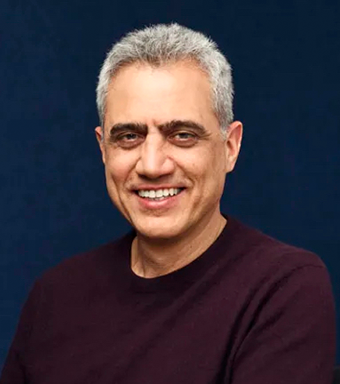

Issi Rozen is a Venture Partner at GV, where he primarily focuses on the formation of new companies and early-stage investments. Issi is an experienced biotech executive and a serial entrepreneur who co-founded multiple start-ups, including GV portfolio company Verve Therapeutics. Previously, Issi spent a decade at the Broad Institute of MIT and Harvard, where he was the Institute’s first Chief Business Officer and a member of the Executive Leadership Team. At the Broad, Issi led the creation of the Office of Strategic Alliances and Partnering and was responsible for developing innovative scientific and business collaborations, initiating and establishing new ventures around novel technologies and overseeing strategy and licensing of the Institute’s intellectual property portfolio. Issi played a key role in the creation and spin-out of over 20 start-ups from the Institute. Prior to joining the Broad, Issi led strategy and business development efforts at a number of biotech companies. An accomplished jazz guitarist, Issi is also a former professor at Berklee College of Music. He earned his MBA at MIT’s Sloan School of Management.
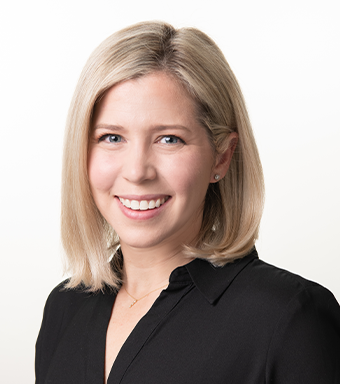

Diana Bernstein is a Vice President at Northpond Ventures on the firm’s biotechnologies team. Previously, Diana was a Senior Associate at MRL Ventures Fund, the corporate venture fund of Merck & Co. (NYSE: MRK), investing in early-stage human therapeutics companies. Prior to that, she was an Associate at Flagship Pioneering, leading projects to conceive and build platform-based therapeutics companies. Diana also spent time at Sigma-Tau Pharmaceuticals (now Leadiant Biosciences) and PricewaterhouseCoopers. She received her PhD in pharmacology from University of Pennsylvania, and a BS in finance and BS in cell biology and molecular genetics from University of Maryland, College Park.
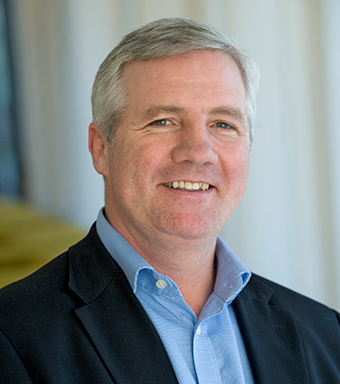

Neil Weir is CEO of Sitryx, a biotech in the field of immunometabolism. Prior to Sitryx, Neil was SVP, Discovery at UCB, overseeing an integrated portfolio of small molecule and antibody projects in immunology and neurology. He and his teams transitioned 33 new chemical entities into development in immunology and oncology as well as bone and neurology, including the marketed medicines Cimzia, Besponsa and Romosozumab. He was an inventor of Cimzia® and dual-signalling domain chimeric receptors now known as second generation CAR-Ts. Neil served as chair of the board of Beryllium BioSciences in Boston and as a non-exec member of the boards of the RNA Medicines company (Boston) and Ondek (Perth). Neil chaired the UK ABPI innovation board from 2012 to 2018, has been involved in various MRC advisory board positions, and was a member of the steering board for the German federal government’s Neuroallianz consortium.
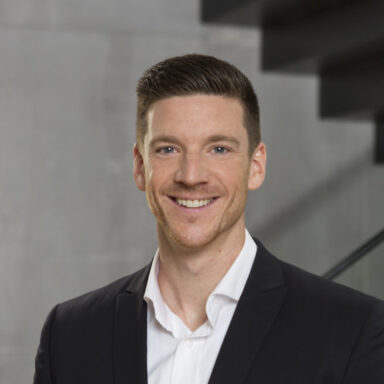

Antoine joined Forbion at the Naarden office in 2019 and is currently Principal, where he sources, leads and manages investments. In that capacity, he is board director at Calluna Pharma and Mestag Therapeutics, as well as board observer at Rectify Pharma, Azafaros and Armgo Pharma. He was formerly due diligence lead on Versanis Bio (Acquired by Eli Lilly), board observer at Inversago Pharma (Acquired by Novo Nordisk) and board observer at Dyne Therapeutics (NASDAQ:DYN). He received his Ph.D. in Molecular Medicine from Laval University in Canada. During his graduate studies, he contributed to the discovery of the RANK/RANKL/OPG molecular pathway in skeletal muscle, investigations leading altogether to the publication of a dozen of authored and co-authored scientific papers in the field of muscle physiology, neuromuscular diseases and muscular dystrophy. Prior to joining Forbion, Antoine was involved in life sciences equity research and worked with the BDC Healthcare Venture Fund in Canada, supporting due diligence processes.
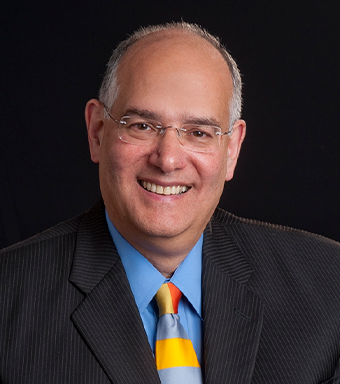

Prof. Brenner is the Brigham Professor of Medicine at Harvard Medical School and Director of the Human Immunology Center at Brigham and Women’s Hospital, Boston. He is co-chair of the NIH-FNIH RA/SLE Accelerating Medicines Partnership (AMP) consortium. He is a member of the National Academy of Sciences, Fellow of the American Academy of Microbiology and Fellow of the American Association for the Advancement of Science. He received the Lee C. Howley Prize for Research in Arthritis (Arthritis Foundation), the Distinguished Basic Investigator Award (American College of Rheumatology) and the Carol-Nachman Prize in Rheumatology. Michael’s laboratory and The Human Immunology Center he leads, design and implement high dimensional immunophenotyping, single cell transcriptomic analyses and functional studies to deconstruct human autoimmune disorders. Using a combination of single cell technologies and functional models, his current work is defining new stromal subsets, their roles in synovial pathology, and how to target them therapeutically.
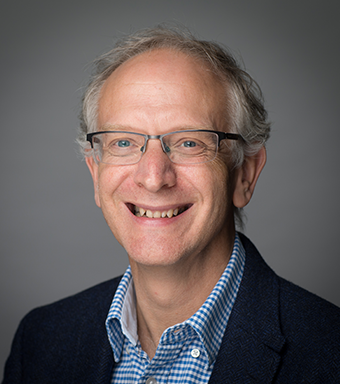

Chris Buckley is Kennedy Professor of Translational Rheumatology at the Kennedy Institute of Rheumatology, University of Oxford. Chris received a degree in biochemistry from the University of Oxford with subsequent undergraduate training in medicine (MBBS) at the Royal Free Hospital, London. His postgraduate medical training was in general medicine and rheumatology at the Hammersmith Hospital, London, and John Radcliffe Hospital, Oxford. Chris obtained a DPhil at the Institute of Molecular Medicine, Oxford. He subsequently joined the Department of Rheumatology in Birmingham, was awarded an MRC Senior Clinical Fellowship and in 2002 became Arthritis Research UK Professor of Rheumatology. In 2012 he was appointed Director of the Birmingham NIHR Clinical Research Facility. In May 2017 Chris took up a new joint academic post between the Universities of Birmingham and Oxford as Director of NIHR Infrastructure in Birmingham for Birmingham Health Partners to Direct the Arthritis Therapy Acceleration Programme (A-TAP). In 2021 he moved to the Kennedy Institute as Director of Clinical Research. He has given the Heberden Oration at the British Society of Rheumatology, the Paul Klemperer Lecture (Arthritis Foundation) at the American College of Rheumatology and is the recipient of the Carol-Nachman Prize in Rheumatology, the Albert-Hasinger Lecture and Prize in Immunology and the William Harvey Medal for Medicine.
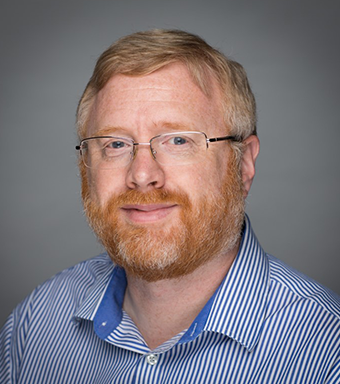

Mark Coles is Kennedy Professor of Immunology, Kennedy Institute of Rheumatology, Nuffield Department of Orthopaedics and Musculoskeletal Sciences, and Official Fellow, Reuben College, University of Oxford. Mark graduated with a BSc (Honors and Distinction) in microbiology from Cornell University in 1992. He completed his PhD in the Department of Molecular and Cell Biology at the University of California, Berkeley, with Prof. David Raulet. His research focused on natural killer cell receptor expression and function on T lymphocytes (NKT and CD8 T-cells). He undertook post-doctoral training with Prof. Dimitris Kioussis at the National Institute of Medical Research, London, investigating mechanisms leading to lymph node and thymus formation and function. In 2006, he moved as a lecturer to the Centre for Immunology and Infection at the University of York focusing on stromal immunology to identify stromal cell formation and function in human and murine lymph nodes and tertiary lymphoid tissue using fluorescent lineage reporters. In 2017, he moved from the University of York to the Kennedy Institute of Rheumatology, where his groups use interdisciplinary approaches from single molecule imaging to multi-scale computational modelling to identify novel methods to therapeutically target immune mediated inflammatory disease with a specific focus on stromal immunology. He co-directs the Oxford Mathematical Immunology Group focusing on tissue pharmacology and immuno-physiology in cancer and inflammatory disease. He works closely with Prof. Christopher Buckley to support the Arthritis Therapy Acceleration Program (A-TAP).
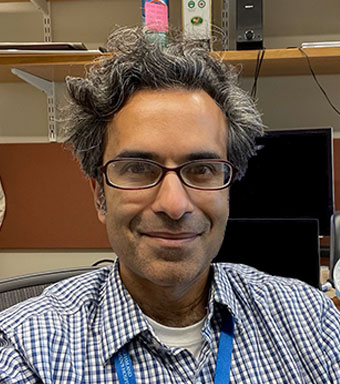

Soumya Raychaudhuri is Professor of Medicine & Biomedical Informatics, Harvard Medical School. He serves as the Director for the Center for Data Sciences at Brigham and Women’s Hospital (BWH) and Harvard Medical School and is appointed as an Institute Member at the Broad Institute. He is clinically active and sees patients at the BWH Arthritis Center. After completing his MD/PhD at Stanford University, Soumya pursued clinical training in internal medicine, and then went on to pursue subspecialty training in rheumatology at BWH. He concurrently completed post-doctoral training in human genetics at the Broad Institute with Dr. Mark Daly. Since joining the faculty at Harvard Medical School in 2010, he has contributed to the understanding of the genetic basis of rheumatoid arthritis and other immune-mediated diseases. He has also been at the forefront of devising statistical and computational methods to localize genetic association signals to causal variants, and to interpret human genetic data in the context of functional information. He currently has active research programs in the human genetics and functional genomics of a wide range of human diseases including rheumatoid arthritis. He has been striving to define the key cell-states and their function driving inflammation in these diseases, including the inflammatory fibroblast.
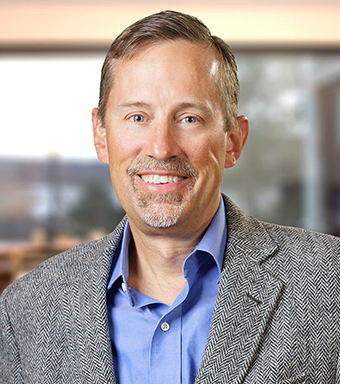

David Tuveson is Director of the Cancer Center and the Roy J. Zuckerberg Professor of Cancer Research, Cold Spring Harbor Laboratory, Chief Scientist at the Lustgarten Foundation and Past-President of AACR. David obtained a bachelor’s degree in chemistry at M.I.T., followed by an MD and PhD at Johns Hopkins. He was a medical resident at Brigham and Women’s Hospital and a medical oncology fellow at Dana-Farber/Harvard Cancer Center. During his post-doctoral years in Boston, David co-developed KIT inhibitors for gastrointestinal stromal tumors with Dr. George Demetri. Simultaneously, he generated several widely used mouse cancer models with Dr. Tyler Jacks. As an independent investigator, David’s lab developed the first mouse models of ductal pancreatic cancer at the University of Pennsylvania. Subsequently, he was recruited to the University of Cambridge, UK, where his lab identified poor drug delivery as a barrier for therapeutic efficacy in pancreatic cancer. He was then recruited to Cold Spring Harbor Laboratory (CSHL) as the Deputy Director of the Cancer Center and to serve as Director of Research for the Lustgarten Foundation. At CSHL, his lab co-developed pancreatic organoid cancer models with Dr. Hans Clevers, and made a series of observations regarding cancer fibroblasts, redox regulation and pancreatitis. His awards include the Rita Allen Award, the Jan Waldenström Award and the Hamdan Award. He was elected to the ASCI, AAP and the National Academy of Medicine.
©Len Marks Photography, 2021/Cold Spring Harbor Laboratory
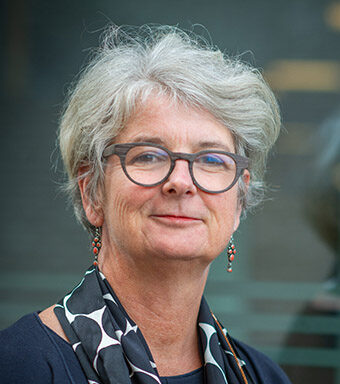

Gabriele Bergers, PhD, is a Professor of Oncology at the University of Leuven and a group leader at the Vlaams Instituut voor Biotechnologie (VIB)-Center for Cancer Biology in Leuven since 2016. Before her move to the VIB, she was a Professor in the Department of Neurological Surgery and a PI in the Brain Tumor Research Center (BTRC) at the Helen Diller Family Comprehensive Cancer Center at the University of California, San Francisco, for 20 years. She has made seminal discoveries about perivascular tumor niches regarding the vasculature and the immune cell compartment in regulating neovascularization, inflammation, and TLS formation in cancer and in revealing and understanding intrinsic and evasive resistance mechanisms of tumors to antiangiogenic immunotherapies. Dr. Bergers has received awards, including the Sidney Kimmel, the Sandler Opportunity, UCSF Breakthrough Biomedical Research, and the Judah Folkman. She has acted as an external advisory board member for a number of universities and pharmaceutical companies. Dr. Bergers was the co-director of the Tumor Microenvironment Brain Tumor Center at UCSF and an advisor to the Max-Planck-Institute for Biomedicine in Muenster, Germany. She was a scientific co-founder of Oncurious.
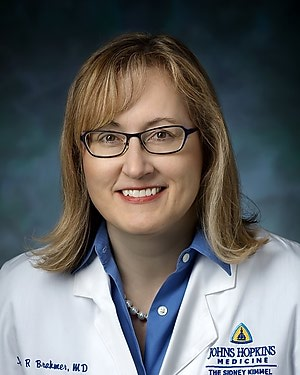

Julie R. Brahmer, M.D., M.Sc., is the Director of the Thoracic Oncology Program, Professor of Oncology at the Sidney Kimmel Comprehensive Cancer Center at Johns Hopkins and the Marilyn Meyerhoff Professor in Thoracic Oncology. She also directs the Kimmel Cancer Center on the Johns Hopkins Bayview campus and is co-principal investigator on Johns Hopkins’ National Clinical Trials Network.
Dr. Brahmer received her undergraduate degree in Chemistry and Philosophy in 1989 from the Creighton University in Omaha, Nebraska and went on to receive her medical degree from the University of Nebraska Medical Center College of Medicine in 1993. Completing her internship and residency in Internal Medicine at the University of Utah, Dr. Brahmer later became the Chief Medical Resident until moving to Baltimore to complete her fellowship in Medical Oncology at the Kimmel Cancer Center at Johns Hopkins.
Dr. Brahmer is an active clinical leader in the treatment of lung cancer and mesothelioma. She leads the organization of the multidisciplinary thoracic malignancy conference whose members meet weekly to discuss thoracic malignancy cases that need a multidisciplinary review/approach. Dr. Brahmer’s research and clinical practice focuses on the development of new therapies for the treatment and prevention of lung cancer and mesothelioma.
Dr. Brahmer’s research interests include leading early phase immunotherapy trials of anti-PD-1 antibodies, international phase III studies of immunotherapies in lung cancer and investigator-initiated trials evaluating epigenetic therapies in combination with immunotherapies.
She is a member of the American Society of Clinical Oncology and the Eastern Cooperative Oncology Group (ECOG) Thoracic Committee and Cancer Prevention Steering Committee. She is one of the founding Board members for the National Lung Cancer Partnership (formerly Women Against Lung Cancer). Within the National Lung Cancer Partnership, she currently serves as a member and the Chairman of the Scientific Executive Committee. She is also on the medical advisory board of the Lung Cancer Research Fund and the Mesothelioma Applied Research Foundation.
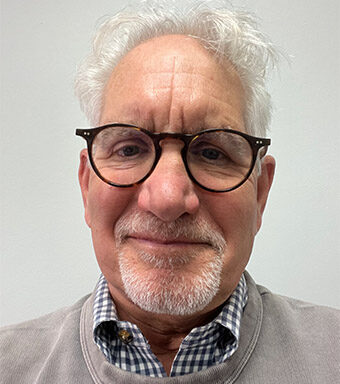

Jeffrey L. Browning, PhD, is a Research Professor at the Boston University School of Medicine in the Departments of Virology, Immunology and Microbiology and Rheumatology. He has a PhD in biochemistry from the University of Wisconsin. As a research scientist in the immunobiology discovery group at Biogen from 1984 to 2012, he centered on the tumor necrosis factor (TNF) family of regulatory molecules, including the discovery of the lymphotoxin, B-cell activating factor (BAFF) and TNF-like weak inducer of apoptosis (TWEAK) systems, and translation of modulators of the lymphotoxin pathway to the clinic in indications ranging from autoimmune disease and inflammatory bowel disease to oncology. He joined Boston University School of Medicine in 2013, with a current focus on altered vascular and stromal states in the perivascular compartment in the skin of systemic sclerosis and lupus patients and the impact on the pathology. Early in his career, he undertook postdoctoral work in the biophysics department of the University of Basel, Switzerland, using nuclear magnetic resonance to study membrane structure; and in the neurobiology department at the University of California, San Francisco researching the neuromuscular junction.
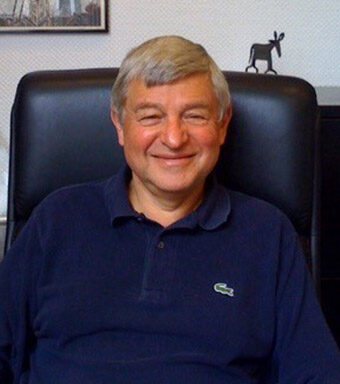

Wolf H. Fridman, MD, is Professor Emeritus of Immunology at Université Paris-Cité. He is an expert in analysis of the tumor microenvironment, demonstrating that context, including functionality, location and density of the immune infiltrate in colorectal tumors, is the major prognostic factor for human cancers. He is involved in developing bioinformatic tools to quantify tumor microenvironment cells used to predict prognosis and immunotherapeutic responses in renal cell and colorectal cancers and sarcomas. His immune classification of soft tissue sarcoma tumors helped demonstrate that TLS and B cell signatures predict favorable clinical outcomes and therapeutic responses to anti-PD-1 therapy better than T cells, findings recently extended to other cancers treated with immune checkpoint blockers. These showed plasma cells generated inside TLS produce anti-tumor antibodies associated with a patient’s response to immunotherapy, opening the way for novel immune-based tools for efficient prognosis and therapy.
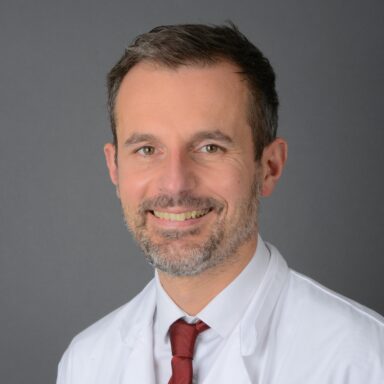

Pr Antoine Italiano is the Head of the Department of Medicine at Institut Bergonié and Professor of Medicine at the University of Bordeaux (France).
He trained as a medical oncologist and received the Best Medical Thesis Prize from Nice Medical School in 2005. He earned a PhD in Molecular Aspects of Cell Biology in 2008 and further honed his expertise with a postdoctoral fellowship in the laboratory of Cristina Antonescu at Memorial Sloan Kettering Cancer Center, New York, USA.
His main research interests include early clinical development, phase I trials across solid tumors, immuno-oncology, pharmacodynamic biomarkers, early phase II trials, and sarcoma. He is also actively engaged in translational research, focusing on sensitivity and resistance to immune-oncology agents and targeted therapies.
Over the past five years, Pr Italiano has served as the Principal Investigator for more than 200 phase I trials, along with multiple phase II and phase III trials in solid tumors.
He is a member of ASCO, AACR, and ESMO and plays an active role in the oncology community, including serving as a peer reviewer for several leading oncology journals. His research contributions have led to over 500 peer-reviewed publications, including first or last author publications in high-impact journals such as Nature Medicine, Nature Cancer, Molecular Cancer, The Lancet Oncology, Journal of Clinical Oncology, JAMA Oncology, Annals of Oncology, and Clinical Cancer Research.
Since 2023, Pr Italiano has been recognized as a Highly Cited Researcher by Clarivate Analytics, underscoring his significant impact on cancer research and innovation.
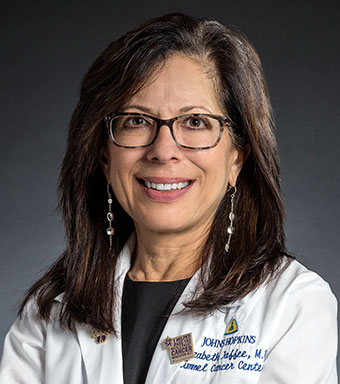

Prof. Jaffee is an internationally recognized expert in cancer immunology and pancreatic cancer. She is Deputy Director of the Sidney Kimmel Comprehensive Cancer Center at Johns Hopkins, Co-Director of the Skip Viragh Pancreatic Cancer Center, and Associate Director of the Bloomberg Kimmel Institute for Cancer Immunotherapy. Her research focus is on developing novel immunotherapies for the treatment and prevention of pancreatic cancer.
Prof. Jaffee is a Past President of AACR. She has served on a number of committees at the National Cancer Institute, including the co-chair of the Biden Moonshot Blue Ribbon Panel which identified high impact research priorities for the NCI. She currently serves as Chief Medical Advisor to the Lustgarten Foundation for Pancreatic Cancer Research. She is the inaugural director of the Convergence Institute for Integrating Technologies and Computational Sciences at Johns Hopkins. Prof. Jaffee is a member of the National Academy of Medicine, a Fellow of the American College of Physicians, a Fellow of the American Association for the Advancement of Science, a Fellow of the SITC Academy of Immuno-Oncology and a Fellow of the AACR Academy. Most recently, she was appointed as chair of President Biden’s Cancer Panel.
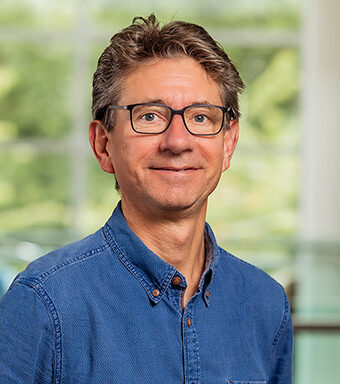

Ray Jupp, PhD, is a veteran drug hunter with over thirty years’ experience in inflammatory disease and cancer research and development. He served as Mestag’s CSO from December 2020 to December 2024. Prior to Mestag, Ray was CSO at dark antigen company EnaraBio and founding CSO of TRex Bio, focused on T-regulatory cells. Previously, Ray was head of the Immunology / Inflammation therapeutic area at UCB, where he drove multiple compounds into development and through Phase 1 and 2. Ray has held R&D leadership roles at Sanofi, Aventis, Rhone-Poulenc Rorer and Roche, where he developed deep expertise in inflammation, immunology and infectious disease. Ray graduated with a PhD in biochemistry from Cardiff University, followed by a post-doctoral fellowship at the Scripps Research Institute, San Diego.
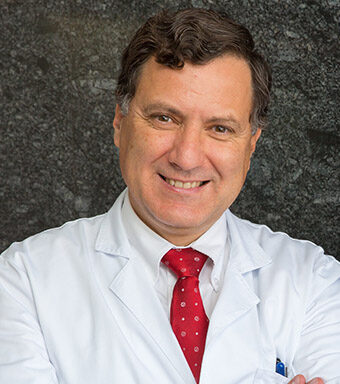

Ignacio Melero, MD, PhD, is a full Professor of Immunology at the Universidad de Navarra, Spain. In 2015 he was appointed co-chair of the Department of clinical Immunology and Immunotherapy at the Clinica Universidad de Navarra. Dr Melero earned his medical degree from the Universidad de Navarra and completed his residency training in Clinical Immunology and his PhD at the Hospital Universitario de la Princesa, Madrid. In 2023, he was appointed Kidani Professorship of Cancer Immuno-Therapeutics at the University of Oxford.
In 1994, Dr Melero joined Bristol-Myers Squibb, Seattle, USA, as a researcher in cancer immunotherapy, where he contributed pioneering work in the field of co-stimulation of antitumor immune responses and the use of immunostimulatory monoclonal antibodies such as those acting on 4-1BB (CD137). Back to Spain in 1998 he started research on cancer immunotherapy focusing on combined synergistic strategies. For his works Dr Melero has been awarded the BIAL Medicine Grand Award and the Francisco Cobos prize among other honors.
Dr Melero’s research interests focus on translational research in cancer immunotherapy with cell, gene and monoclonal antibody-based strategies. Dr Melero has served as Principal Investigator in numerous cancer immunotherapy clinical trials sponsored by pharmaceutical industry and other institutions. He has authored over 340 peer-reviewed publications and currently serves as Senior Editor for Clinical Cancer Research, Scientific Editor for Cancer Discovery, and Section Editor for the Journal for Immunotherapy of Cancer. Member of the scientific advisory boards of institute Curie (Paris), institute the investigación biomédica de Granada, Netherlands cancer Institute (NKI) and member of the scientific council of Institute Gustave Roussy
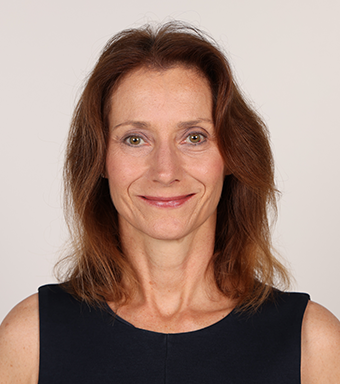

Dr. Theresa Podrebarac, MD, MSc, is a physician scientist with extensive development expertise in the biotech industry. At Horizon Therapeutics, Dr. Podrebarac leads the clinical development function dedicated to bringing medicines for rare, autoimmune and severe inflammatory diseases to patients. Prior to Horizon, Dr. Podrebarac served as chief medical officer at three biotech companies focusing on rare diseases and gene therapy. She was also vice president, immunology clinical development, at AbbVie, where she helped develop approved therapies for psoriasis, Crohn’s disease, atopic dermatitis and rheumatoid arthritis. At Biogen, she championed the development of several compounds in early development that became first in human trials, and has had multiple filing experiences in multiple sclerosis and rheumatoid arthritis.
Dr. Podrebarac holds an MSc in immunology from the University of Ottawa, an MD from Western University and was a postdoctoral fellow in Immunology at Harvard University. She was board certified in Internal Medicine and Rheumatology.
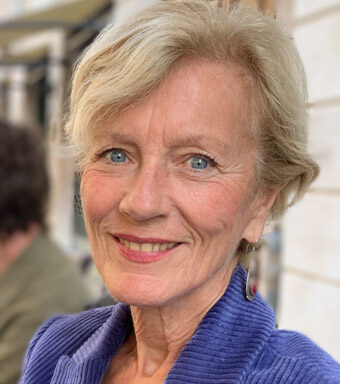

Catherine Sautès-Fridman, PhD, is Professor Emeritus at Université Paris-Cité. She is the former Director of the Cancer, Immunology and Immunopathology department and Director of the Immunotherapy and Cancer team at Centre de Recherche des Cordeliers. Her research focuses on the heterogeneity of the immune and inflammatory components of the tumor microenvironment to identify new prognostic and theranostic markers. She carried out work in several fields: histocompatibility antigens, demonstration of the association of human leukocyte antigens (HLAs) with beta2-microglobulin and description of the 3rd histocompatibility locus in mice, H-2L and HLA-C in man, receptors for immunoglobulin G antibodies (biological activity and 3D structure), immuno-oncology (role of interleukin-17, TIME profiles of patients at risk of disease progression in localized kidney cancers, role of Tertiary Lymphoid Structures). She is the former President of the French Society of Immunology and European Federation of Immunological Societies. She founded the EFIS-EJI Ita Askonas Award to acknowledge female group leaders in immunology, and she founded the first European Congress of Immunology. She is Editor-in-Chief of La Revue Immunité et Cancer.
Partners and Collaborators
MSD: Mestag has a license and research collaboration with MSD to identify novel targets for inflammatory diseases utilizing Mestag’s RAFT platform.
Johnson & Johnson: Mestag licensed a novel inflammatory disease target to Johnson & Johnson under a 2021 target discovery, option and license agreement with Janssen Biotech, Inc.
Innovate UK, part of UK Research and Innovation: Mestag received a “Transforming Cancer Therapeutics” grant from Innovate UK’s Cancer Therapeutics program of £1.5/$1.9 million to accelerate the path to the clinic for M300.
VIB, an entrepreneurial research institute: Partnership for the development of single domain antibodies, also known as Nanobodies®, to an undisclosed target that plays a central role in anti-cancer immunity.
We also partner extensively with academic institutions worldwide and with leading CROs. For partnering discussions, please contact bd@mestagtx.com
References:
1) Internal 2020 analysis of ORR across 26 approved indications for checkpoint inhibitors (company sources, prescribing information); Wang et al., Sig Transduct Target Ther 2022; Hirsch et al., Br J Cancer 2019

